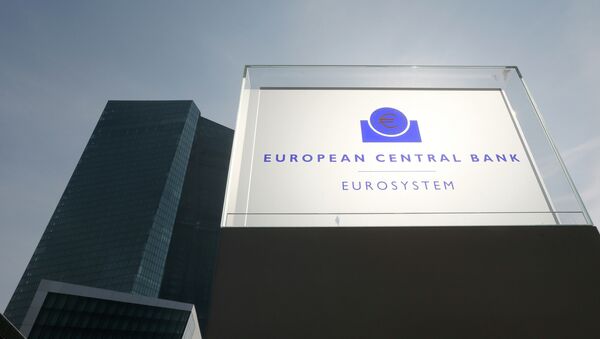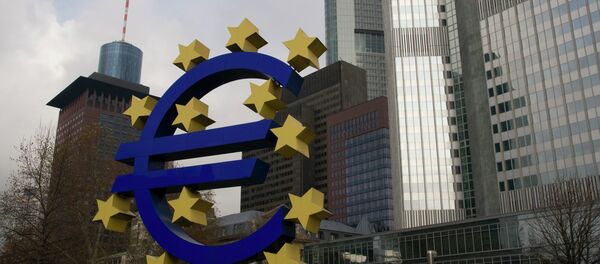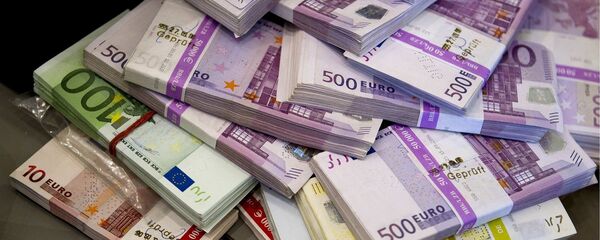Kristian Rouz — President of the European Central Bank (ECB) Mario Draghi says that leaving the EU or the Eurozone would not enhance the national sovereignty of a former member state in an apparent jab at Brexit. Draghi said that the EU also shields its member states from the uncertainty and other challenges related to globalisation of the world economy.
In his speech in Bologna, Draghi defended the European integration project, saying that EU institutions and legal protections help member states offset the political and economic risks posed by potentially hazardous events and developments. Among such things, Draghi focused on Brexit and the recent rise of right-wing populism across the developed world.
"In today's world… only the very largest countries are able to be independent and sovereign at the same time, and even they cannot do so entirely", Draghi said. "For most other nation states, including the European countries, these two characteristics do not coincide".
Draghi suggested that greater regionalisation is the best way for smaller countries to assert their national interests in the global arena, which is increasingly dominated by economic heavyweights such as China or the US.
READ MORE: Three Cabinet Ministers Vow to Back Brexit Delay to Avoid No-Deal
However, he said, upon leaving a regional integration project, individual nation states will find themselves under a greater pressure from the world's bigger powers, which could eventually limit their ability to protect their national interests.
Draghi also said that EU officials must make sure that core European values prevail across the bloc, suggesting that an emphasis on representative democracy, human rights, and fair economics could help Europe boost its unity in the face of global challenges ahead.
"There should be no doubt: this adjustment will have to be as deep as the phenomena that revealed the fragility of the existing order, and as vast as the dimensions of a geopolitical order that is changing in a way that is not favourable for Europe", the ECB president said.
Draghi also urged member states to put European interests above national political considerations. This remark might have come in response to recent statements from members of the populist Italian government, who said that EU policies are gradually eroding Italy's identity within the bloc.
READ MORE: Finance Expert on How France & Italy May Bring Down European Community, Euro
However, Draghi weighed in on the EU's trade policies, saying that countries wishing to leave the bloc would have to either accept the rules of trade proposed by Brussels, or face restrictions on their access to the single market.
This comes as UK Prime Minister Theresa May is seeking to change the Brexit deal proposed by Brussels. EU officials have repeatedly stressed that the proposed accord is not up for re-negotiation, but PM May appears to be seeking a compromise solution.
However, Draghi took a hard-line stance on the matter, also suggesting that Brexit could produce fluctuations in currency exchange rates — not in the favour of those who leave.
"Most countries would no longer benefit from local currency invoicing, which would exacerbate the effects on inflation if they undertook large exchange rate devaluations", Draghi said.
READ MORE: Italian Eurosceptics Fear Losing National Control Over Gold Reserves — Economist
But Draghi stressed that the ECB is the Eurozone's highest monetary authority, and Italy will have to comply with rules and decisions made in Frankfurt.
"They would be more exposed to monetary policy spillovers from abroad — not least from the ECB itself — which could constrain their domestic policy autonomy", Draghi stressed.
The UK is set to leave the EU on 29 March, and a rising number of MPs in Westminster are calling for a "no-deal" Brexit due to the EU's alleged lack of flexibility on striking a mutually-satisfying accord. The EU, for its part, has been concerned with other member states possibly demanding a greater say within the bloc's governance architecture after Brexit.






